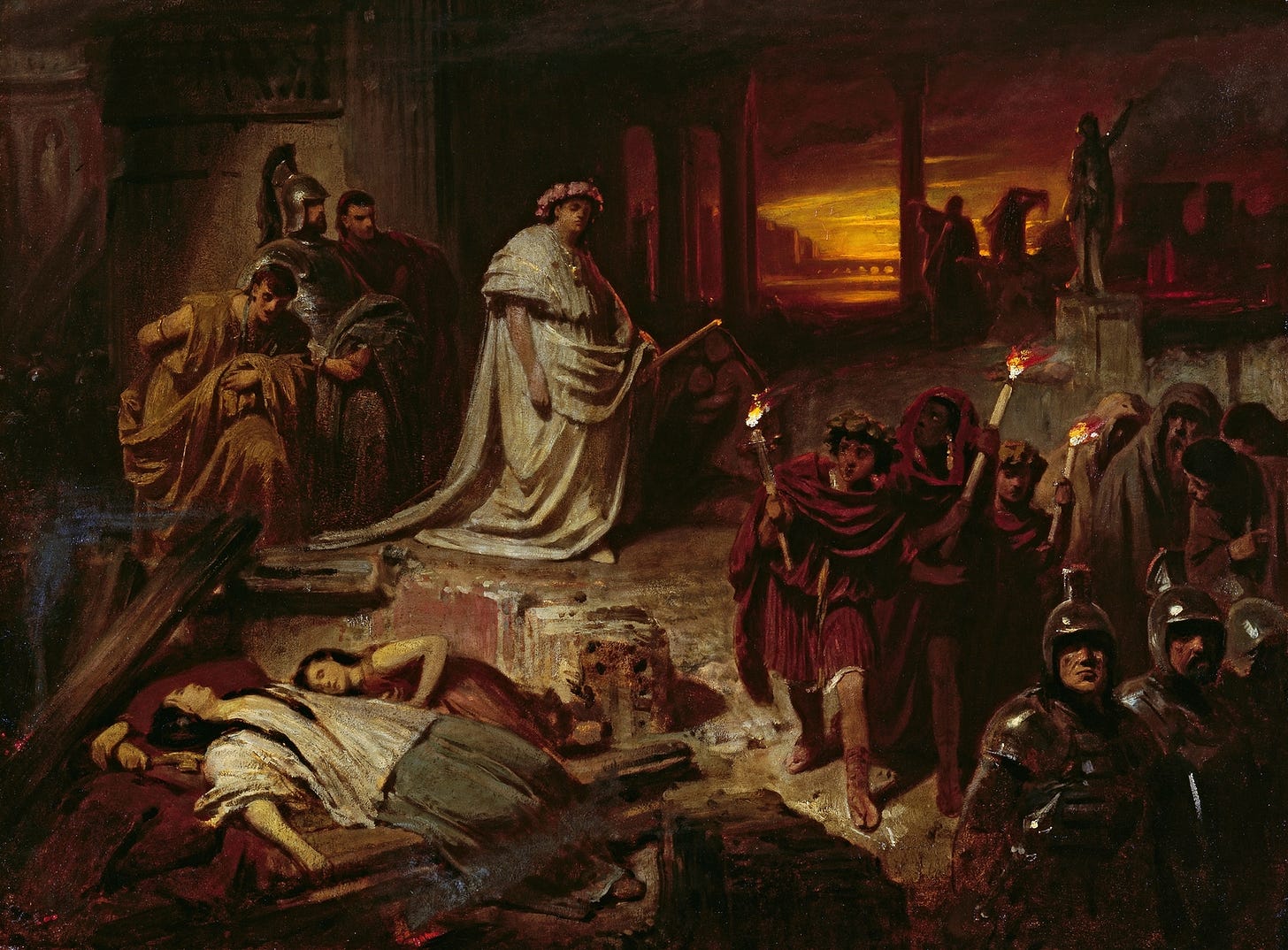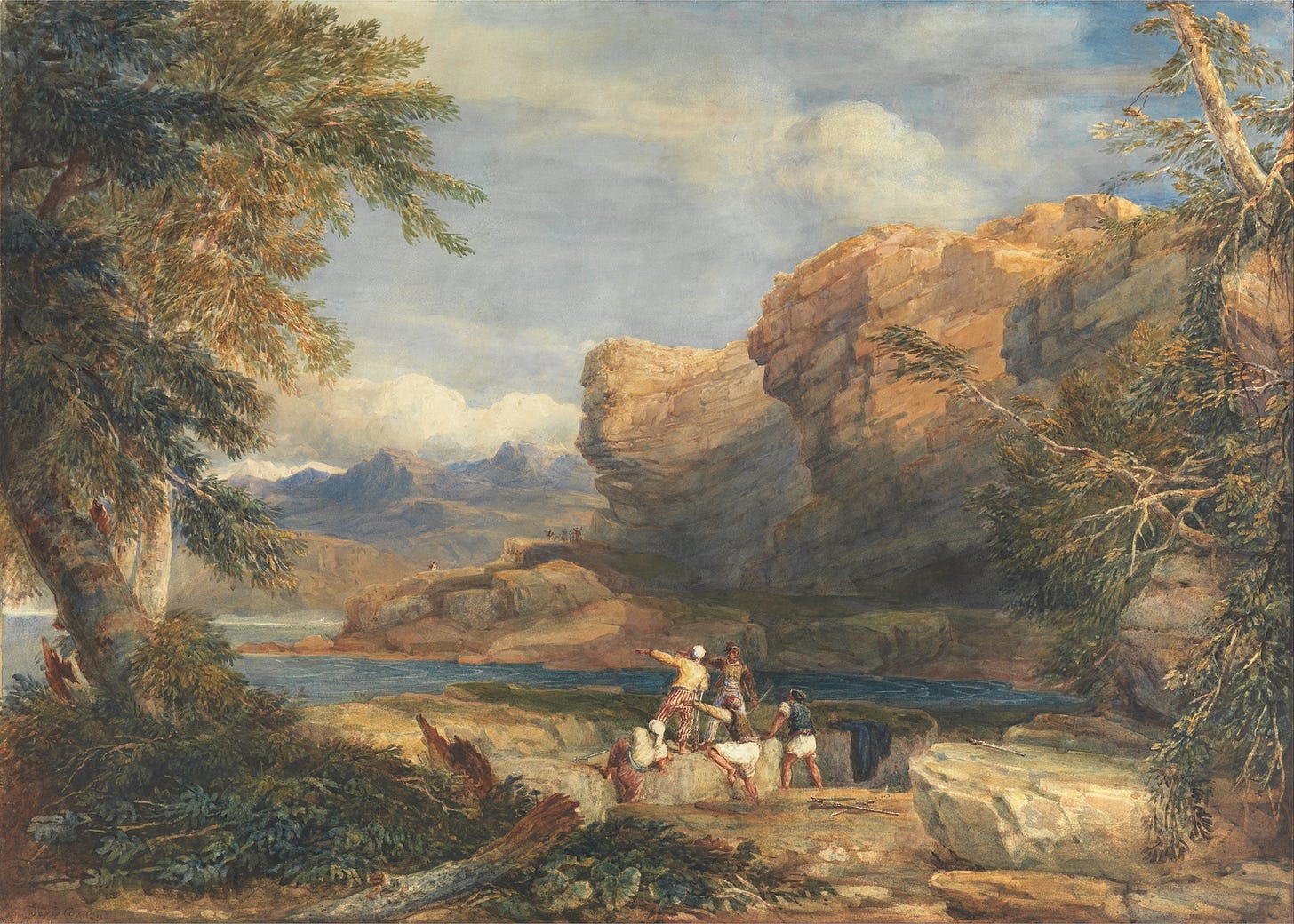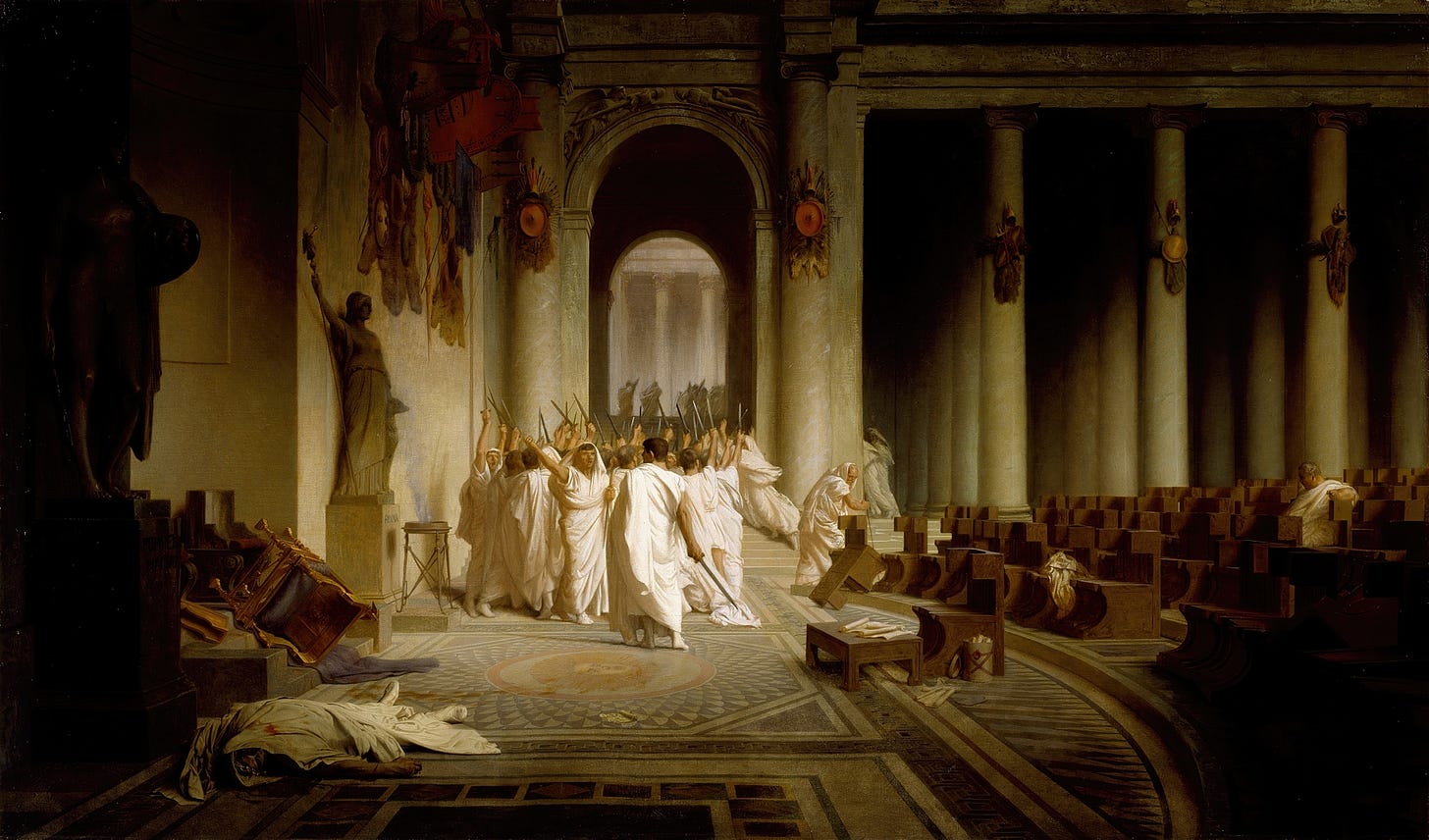Stories From Our Past: Why You Should Read Narrative History
What use is history if we don't remember it?
“A centurion, rushing into the room, attempted to staunch the flow of blood with his cloak, but it was too late. ‘Such loyalty,’ the dying man murmured; and then his eyes began to bulge horribly. Nero Claudius Caesar Augustus Germanicus was dead.”
--Tom Holland; Dynasty

It took me a long time to shake the idea that narrative history is somehow inferior to its cold-blooded, analytical academic cousin.
A severe lady, my university lecturer taught Caribbean piracy (the world of Blackbeard, Calico Jack and the great Jamaican port fortresses) with monklike asceticism. I remember nothing.
Her approach was not unusual. Eight years I studied history. Eight years I spent wading my way through the thick mud of Big Themes and Systemic Factors. Throughout, emotion and characters were treated as an uncomfortable distraction, like the sympathy guest at a dinner party: present but not involved.

The stench of snobbery clings to academic historians’ hand-waving dismissals of the panache of narrative history.
For the academic historian, to read narrative history is to prostrate ourselves to the biases of the storyteller. History is an intellectual exercise, not an emotional one. We are taught to approach it cautiously, guardedly.
Take these extracts from a critical review of Dynasty, Tom Holland’s1 wonderful narrative account of the dawn of the Roman Empire.
“Depressing enough, this is ancient Rome for the age of Donald Trump.”
“The whole thing is delivered in a prose that always wears the literary equivalent of shoulder pads, orange lipsticks and stilettos.”
Deliciously spicy though the latter burn may be, the implications are altogether more unsavoury. By deigning to narrativise something as precious as history, Tom Holland played Pimp, tarting it up and prostituting it to the whims of those who don’t know any better.
The isolation of emotion is a noble goal for those seeking a career as an academic historian, but what about the rest of us? What use is history if we don’t remember it, if it doesn’t inflame the spirit as well as the mind?
Of all the topics I learned, the only ones that have really stuck with me are those taught with a narrative flair. The fratricidal terror of the Spanish Civil War. The mythological accomplishment of Mao’s long march. The abandoned promise of the Weimar Republic.
I never studied the fall of the Roman Republic. And yet the scent of its decaying institutions, the primal energy of the populares unleashing the powder keg of plebian society, are as real to me from Tom Holland’s books as the ground I stand on.

One of the premises of my Substack is that stories matter and allow us to find new ways of engaging with the world.
We are not cold-blooded fact compilers. We are tribesmen around the campfire, congregations at church, audiences at the theatre.
To dismiss the importance of narrative history is to dismiss what makes us human. It is through narrative that history comes alive, and it is through narrative that most of us will be able to forge a connection with our ancestors.
If the risk of this is that we may become exposed to the biases of the authors we read, then this is a price worth paying.
Read narrative history.
The historian, not the Spiderman actor!


Fully agree; one of the most engaging and captivating history books for me was Barbara Tuchman's "The Guns of August," about the first month of World War I. Tuchman says, in the book's preface, that not a single thing she mentions is a fabrication—if she says, "the weather was gloomy that day," she has meteorological reports to back up her assertion. That's a welcome perspective; history can be an entertaining narrative full of depth and detail, without having to be the product of the historian's imagination.
This resonated a lot with me and got me thinking: "What use is history if we don’t remember it, if it doesn’t inflame the spirit as well as the mind?"